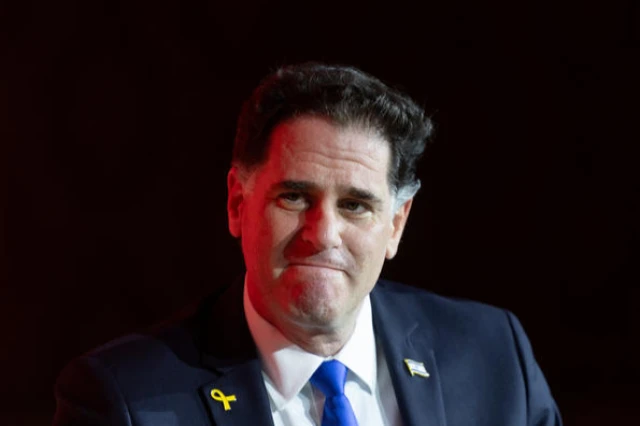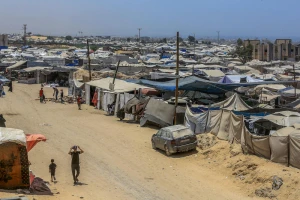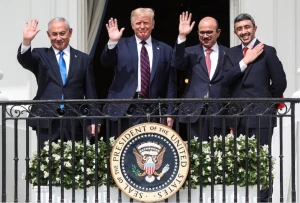Israeli Minister Dermer visits UAE to mend strained ties over Gaza War

Israeli Strategic Affairs Minister Ron Dermer recently visited the United Arab Emirates. Unnamed sources told Bloomberg that the purpose of the visit was to “repair strained relations between the countries following the war in Gaza” against the terrorist organization Hamas.
Dermer reportedly met in Abu Dhabi with senior Emirati officials, including President Mohammed bin Zayed Al Nahyan. According to the sources, one of the main reasons he was dispatched to the Gulf state was to “brief UAE leadership” on Israel’s looming military offensive against Hamas in Gaza City.
While the UAE views Hamas as a threat to regional security, Emirati diplomats have, like their European counterparts, warned that a full-scale Israeli control of Gaza could “lead to catastrophic outcomes.” Neither the UAE nor Israel officially announced Dermer’s visit to the Arab Gulf state.
Dermer, who previously served as the Israeli Ambassador to the U.S., is a close ally of Prime Minister Benjamin Netanyahu. Despite Netanyahu’s central role in the realization of the U.S.-brokered Abraham Accords between Israel and the UAE in 2020, bin Zayed has reportedly refused to meet Netanyahu in person due to disagreements concerning the ongoing war in Gaza.
Dermer’s visit to the UAE came just weeks after Israeli intelligence warned of increased security alerts in Dubai and Abu Dhabi. Jerusalem has been concerned that the Iranian regime could potentially try to attack Israeli diplomats or Israeli tourists in the UAE following Israel’s Operation Rising Lion offensive against Iran’s nuclear and ballistic missile assets. Israel has also eliminated much of Iran’s senior military leadership.
As a result, the Foreign Ministry recently instructed Israeli diplomats and their families to evacuate the Israeli embassy in Abu Dhabi.
Israeli Foreign Minister Gideon Sa’ar visited the UAE in January to discuss the country’s potential participation in a post-Hamas post-war Gaza reconstruction.
“Happy to visit the UAE at the invitation of [Abdullah bin Zayed], UAE’s Foreign Minister, to his official residence in Abu Dhabi. We discussed regional developments, as well as the bilateral relations between our countries,” Sa’ar stated at the time.
However, the Emiratis have grown increasingly critical of Israel’s military operations in Gaza and the rising civilian death toll in the enclave. While signaling a willingness to participate in Gaza’s post-war reconstruction, UAE officials have emphasized that the country will not serve as a political cover for alleged Israeli plans to control the territory. They have also voiced opposition to Netanyahu’s plan to exclude the Palestinian Authority from a post-war Gaza, citing its sponsorship of terrorism against Israel and Jews.
“The UAE will not participate in any plan that fails to include significant reform of the Palestinian Authority, its empowerment, and the establishment of a credible roadmap toward a Palestinian state,” one unnamed Emirati official told the news outlet Reuters in January.
The UAE’s decision to invite opposition leader and former interim Prime Minister Yair Lapid – while excluding Netanyahu – has further strained relations between Abu Dhabi and Jerusalem.
“It’s odd that an opposition leader is invited before the sitting prime minister,” Netanyahu’s allies have stated.
Tensions between the Netanyahu government and the UAE extend beyond the Gaza War.
Top Emirati officials have reportedly demanded that Israel replace its ambassador in Abu Dhabi, Yossi Shelley, who is accused of acting inappropriately and violating local business protocols.
The Israeli government has so far resisted the demand, complicated by Shelley’s reported close ties to Netanyahu, who wants him to stay in the post. However, with the UAE boycotting him, Jerusalem may eventually be compelled to appoint a new envoy to the key Gulf state.

The All Israel News Staff is a team of journalists in Israel.
You might also like to read this:










